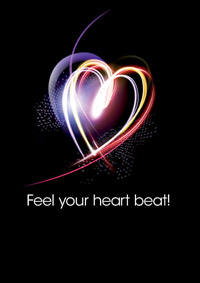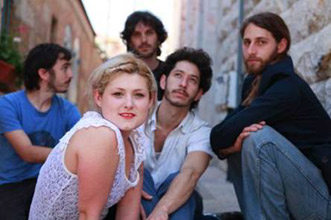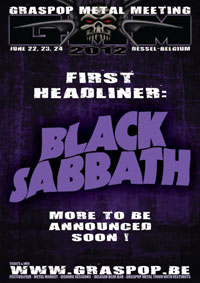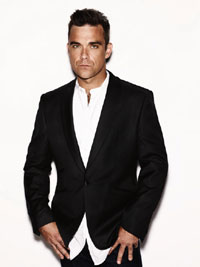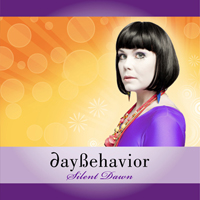 In the 1950s, when television was still a novelty and European awareness was still in its infancy, a truly great European idea was born: the Eurovision Song Contest, known to many in Europe by its French name, le Grand Prix Eurovision de la Chanson. What initially looked like a European version of the already successful Sanremo Music Festival, quickly evolved into a large-scale TV event.
In the 1950s, when television was still a novelty and European awareness was still in its infancy, a truly great European idea was born: the Eurovision Song Contest, known to many in Europe by its French name, le Grand Prix Eurovision de la Chanson. What initially looked like a European version of the already successful Sanremo Music Festival, quickly evolved into a large-scale TV event.
It was a kind of showcase for the seven major countries that took part in the first contest; a technical and aesthetic spectacle. When the lights went up on the very first Eurovision Song Contest in Lugano on 24 May 1956, Germany was in the middle of its post-war economic miracle. No-one at the time could have foreseen that the number of competing countries would one day swell to over 40 or that the countries of Eastern Europe would eventually join the contest. Today the song contest is one of the biggest events in the television calendar: well over 100 million viewers wait in the hope that it will rain ‘twelve points! douze points!’ for their country.
‘Douze points’ … that’s all that matters; the only thing that counts for contestants. So much so that the term has now become a well-known phrase across Europe. ‘Douze points’ is the name of the lounge that the NRW-Forum will be setting up in its café during the Eurovision Song Contest in Düsseldorf. All the record covers of the winning Eurovision songs will be on display and there will be videos from the 55-year history of the Eurovision Song Contest. It will be like taking a stroll through the history of post-war Europe.
The black-and-white footage from the early years of the contest are surprising: if you look closely, you can see a well-behaved, well-raised, well-groomed boy in shorts waiting to present the singer with a bouquet of flowers. Back then, singers were forbidden to dance and gesticulate, and a conductor and orchestra were on hand to accompany every one of the contestants.
In the years that followed, the Grand Prix mirrored developments in society. Politically motivated boycotts and the spread of the European idea made sure that while some competing countries came and went, the overall number rose steadily. The 1960s did not pass without leaving their mark on the Eurovision either: France Gall, for example, won the contest singing a song, the like of which had never been heard on television before. It was written by Serge Gainsbourg and was full of double-entendres (tellingly, the entry received no points from any French-speaking countries). The growing popularity of the contest meant that numerous rule changes were necessary to cope with the large number of entries and the new technical opportunities opened up by televoting.
Numerous stars, great and small, launched their careers with performances at the Eurovision: France Gall with ‘Poupée de cire, poupée de son’ (1965), ABBA with ‘Waterloo’ (1974), Nicole with ‘A Little Peace’ (1982), or Lena Meyer-Landrut with ‘Satellite’ (2010). For all these successes, however, there are countless others who sank into obscurity after their performance at the Eurovision. The major trend among participating countries to create groups and singers with the greatest possible audience appeal meant that the Eurovision lost a huge amount of its authentic appeal in the 1990s. While the number of competing countries did not fall, television viewers lost interest. In the late 1990s and early years of the new millennium, this trend was reversed by a number of performances that made fun of the song contest mainstream or the perfect world sung about in many of the songs. The performances by Guildo Horn, Stefan Raab, the hard rock band Lordi with its horrendous masks, or t
he transsexual Israeli singer Dana International were the highlights of this era.
Much of this is reflected in the covers and the films on display in the lounge. Some participants have long since been forgotten; some are well-known; others have become cult icons.
The Eurovision Song Contest is said to be both the most widely criticized, yet most interesting, television show in Europe. It is also – ‘perhaps more so now than ever before’ – a means of showcasing a country. In the catalogue that accompanies the exhibition, the journalist Max Dax asks why democracy in song often leads to aberrations and confusion, and why dictatorship is not a solution either, especially when it is quintessentially all about fostering or breaking with traditions. Max Dax is a journalist, photographer, and author. He was editor-in-chief of the pop magazine Spex until late 2010. He is currently working on his first novel.
The Douze Points Lounge will be open from 11.00 a.m. to 8.00 p.m. Tuesday to Sunday, and from 11.00 a.m. to midnight on Friday. There will also be music from 8.00 p.m. to midnight on Friday. Naturally, the Zeitgeist and Glamour exhibition with photographs of the jet set of the 1960s and 1970s – the perfect complement to the Douze Points Lounge! – will be open to the public for the duration of the lounge.
Admission/catalogue:
Entry to the Douze Points Lounge is free of charge. Entry into the Zeitgeist and Glamour exhibition costs €5.80. The small catalogue that accompanies the Douze Points Lounge includes 8 wonderful historic record covers of winning songs as postcards, a text leaflet. It costs €8 and is only available in the museum and Buchhandlung König.
Douze Points:
29 April to 15 May 2011
NRW-Forum Düsseldorf
Ehrenhof 2, 40479 Düsseldorf, Germany
11.00 a.m. to 8.00 p.m. Tuesday to Sunday; 11.00 a.m. to midnight on Friday
www.nrw-forum.de
facebook.com/nrwforumduesseldorf
Logo: www.eurovision.tv
Press release Stadt Düsseldorf
